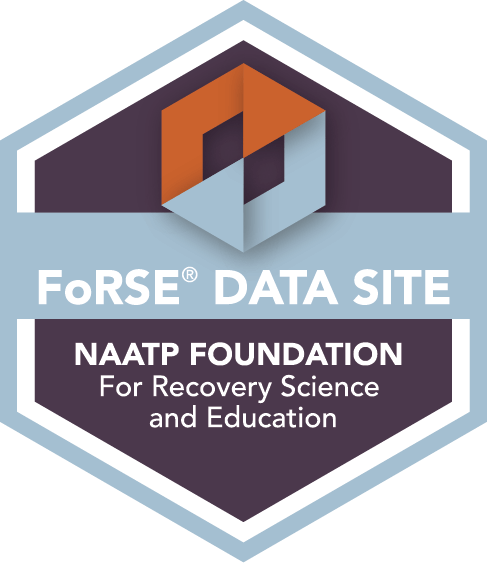If you’re struggling with drug or alcohol dependency, you know that cravings make overcoming addiction on your own incredibly tricky. For some individuals, managing cravings and reducing the impact of withdrawal symptoms is best accomplished through the strict administration of medications designed to help. MAT detox is an innovative treatment approach that can help ease the recovery process and prevent relapse.
Some people may be wary of taking medications during treatment, fearing it could lead to further addiction. However, medication-assisted treatment offers many evidence-based benefits, helping individuals recover more efficiently and stay on track long-term. After completing MAT detox, transitioning to a supportive environment, such as a halfway house, can provide additional structure and stability to maintain sobriety. Explore the MAT program at Northern Illinois Recovery Center to learn what you can expect from this treatment and how it works.

What To Expect in MAT
Medication-assisted treatment allows for extra help with trusted medications that are proven to decrease these cravings and push towards longer sobriety. The combination of personalized therapies and medication can greatly increase the chances of long-term recovery.
However, a MAT treatment program offers more than just medication; it provides engaged therapy to help individuals address their underlying mental health issues that contribute to and spring from a substance use disorder. During our MAT treatment, participants can expect to be able to take part in the following therapy programs:
- Group therapy
- Yoga therapy
- Trauma therapy
These therapeutic options help individuals learn to identify, address, and surmount the mental health issues they face as they recover from addiction.
What are the Benefits of Medication-Assisted Treatment?
Once you can overcome a period of withdrawal and beat cravings, you’ll find you can work on parts of treatment like counseling and education. You’re also more likely to avoid relapse once you’re able to move past the withdrawal period without lasting symptoms successfully.
Learning coping skills is also an important part of any medication-assisted therapy program. The first component deals with withdrawal, then comes the learning and processing. When receiving the medication-assisted treatment Northern Illinois offers, you’re more likely to avoid relapse. Studies show this to be true.
Why Seek a MAT Treatment Program?
There are several reasons to seek the medication-assisted treatment Northern Illinois offers. Medication-assisted treatment from a reputable recovery center such as Northern Illinois Recovery can make the entire process much easier on you. Medication-assisted therapy helps you overcome withdrawal symptoms so that you can then focus on learning the skills you need to stay clean.

Our MAT Program Process
- Proper diagnosis of the substance use disorder
- Evaluate the severity of the addiction
- Assess if you qualify for our dual diagnosis treatment
After your evaluation, we will collaborate with you to tailor a care plan that perfectly meets your treatment needs. Together, we will decide whether you are a good candidate for medical-assisted treatment. Typically, a good candidate will have met the following conditions:
- An official diagnosis of addiction (alcohol or opioids)
- Full compliance with prescribing instructions
- No physical health issues that could be exacerbated by medication
- Full understanding of alternative options
Are You a Good Candidate for MAT?
- Have a history of medication abuse/misuse
- Have an addiction that can’t be treated by FDA-approved medication
- Have a co-occurring substance addiction
- Have little to no motivation for getting sober
- Have severe physical conditions (heart or lung conditions) that might lead to further complications
There are plenty of different treatment options that can help you get to a better life down the road. Northern Illinois Recovery has a wide range of treatments that might work better if MAT doesn’t. Staying sober and clean can be a tough battle, but we’ll be by your side every step of the way.

Types of Medication in MAT
Methadone is a drug that is primarily used to relieve some of the harsh withdrawal symptoms and cravings of those addicted to painkillers or heroin. It is powerful enough to deter cravings and withdrawal symptoms for up to a day and a half in just one dose.
Methadone, in particular, is known as a full opioid agonist. The term means that methadone has similar effects to other opioids. Methadone is longer-acting and thus will have milder effects that shouldn’t affect the person’s ability to function.
Buprenorphine is a partial opioid agonist and is primarily used to treat opioid addiction. It can be used to treat abuse of substances like heroin and prescription painkillers like OxyContin or Vicodin. Buprenorphine is unique in the sense that it can be prescribed and obtained directly from your local doctor’s office.
As a readily available prescription medication, buprenorphine should be used in part with other treatments. Buprenorphine shouldn’t be used in isolation as it is designed to aid with recovery treatment. Taking buprenorphine alone can lead to potential abuse and prescription diversion due to its opioid effects. However, there is a way to avoid this concern by combining buprenorphine with naloxone to decrease the potential chance of abuse.
Similar to buprenorphine and methadone, Probuphine is used to alleviate the cravings and the harsh withdrawal symptoms that come with drug abuse. It is the first FDA-approved buprenorphine implant made for combating opioid dependency. During medical-assisted treatment, Probuphine can stabilize the person and decrease the intense cravings with opioid addiction, all without creating a “high.”
The Probuphine implant consists of four rods that are carefully placed into the upper arm. These rods continuously give the person a dose of buprenorphine into the bloodstream. This medical-assisted treatment can last up to six months. The implant works as a reliable alternative to other forms of buprenorphine, such as pills or dissolvable films. This treatment is prescribed to those who are stable on low to moderate doses of buprenorphine. It is recommended that Probuphine not be used past the two six-month treatment periods.
Naltrexone is an injectable (or can be taken in pill form) medication that can help those suffering from alcohol or opioid addiction. The injectable version of naltrexone is called Vivitrol. Naltrexone can be injected intramuscularly and conveniently requires only monthly doses.
Naltrexone essentially blocks the opioid receptors. By blocking these receptors, the person cannot get the same euphoria or ‘high’ they would if they abused a drug, alcohol, or opioid. This deters use since pleasure is completely removed from the equation.
Acamprosate (also known as Campral) is a medication that prevents relapse and promotes abstinence for those who are dependent on alcohol. When the brain becomes wired towards alcohol, the mind is set with a new “equilibrium” point. This is where alcohol dependency is formed.
When the person does not get enough alcohol in their system, the balance tips to a hyper-excitatory state. Acamprosate attempts to lessen some of the post-acute withdrawal symptoms that come with this balance tip, which can lead to relapse without intervention.
Medication-Assisted Treatment FAQs
Medication-assisted treatment (MAT) is primarily used to treat opioid addiction, including prescription pain relievers like oxycodone and hydrocodone, as well as illicit drugs like heroin and fentanyl. It is also FDA-approved to treat alcohol use disorder. For opioid use disorder, common medications include methadone, buprenorphine, and naltrexone, while acamprosate, disulfiram, and naltrexone are used for alcohol dependence. MAT is not typically used for stimulant addictions, such as cocaine or methamphetamine, as there are no FDA-approved medications for those substances yet.
No, using prescribed MAT medications does not substitute one addiction for another. These medications are carefully administered and monitored by medical professionals to stabilize brain chemistry, reduce cravings, and block the euphoric effects of substances. This allows the patient to focus on their recovery and therapy without the debilitating cycle of intoxication and withdrawal. The goal is to achieve remission from the substance use disorder and improve overall functioning, which is fundamentally different from the compulsive, harmful use characteristic of addiction.
Yes, many patients can eventually stop taking MAT medications, but the timeline is highly individualized and based on their specific recovery journey. Some individuals may use medication for a relatively short period to manage acute withdrawal, while others may benefit from long-term or even lifelong maintenance to sustain their recovery and prevent relapse. The decision to taper off medication should always be made collaboratively with a healthcare provider to ensure it is done safely and at the right time for the patient’s stability.
Yes, outpatient MAT programs are very common and are a core component of addiction treatment, allowing individuals to receive care while living at home and maintaining work or family commitments. Outpatient programs that include MAT provide a combination of prescribed medication and counseling or behavioral therapies on a scheduled basis. This flexible model makes effective treatment more accessible to a wider population and supports long-term recovery within a person’s community.
The cost of MAT can vary widely depending on the type of medication, the frequency of clinic visits, insurance coverage, and whether the program is public or private. Many insurance plans, including Medicaid and Medicare, cover MAT services. At Northern Illinois Recovery Center, we’re dedicated to making our services accessible to those who need them most. Our admissions team can help you verify your insurance coverage, explain your benefits, and review payment options.
Find Out if MAT is Right For You






